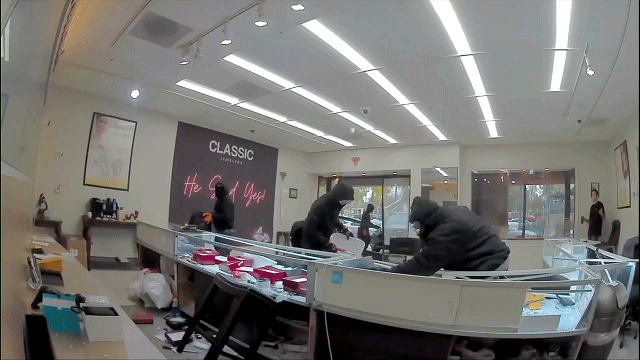AI fraud schemes could cost US taxpayers $1 trillion: expert
Haywood Talcove, CEO of LexisNexis Risk Solutions' government division, told Fox News Digital that he believes there will be more than $1 trillion in artificial intelligence-assisted fraud if U.S. doesn't act quickly.
Artificial intelligence smashed the floodgates to unprecedented fraud that could cost taxpayers hundreds of billions, if not $1 trillion, over the next 12 months, an expert told Fox News Digital.
Haywood Talcove, CEO of LexisNexis Risk Solutions' government division, which evaluates and predicts risk, said he's already seeing criminals on the dark web using people's faces to steal from government and state agencies.
Benefits to America's most vulnerable communities, such as Social Security, Medicare and Medicaid, and unemployment, are ending up in the pockets of criminals and criminal enterprises that are operating all over the world.
"Being one of the wealthiest countries in the world makes us a huge target," Talcove said. "The amount of money that we're going to lose over the next 12 months, if we do nothing, is going to make the COVID pandemic look like child's play."
AI ‘DEEPFAKES’ OF INNOCENT IMAGES FUEL SPIKE IN SEXTORTION SCAMS, FBI WARNS

Haywood Talcove (Courtesy)
Talcove predicted scams and fraud that followed Hurricane Katrina and the COVID pandemic.
Now, he's sounding the alarm about AI.
WHO IS WATCHING YOU? AI CAN STALK UNSUSPECTING VICTIMS WITH ‘EASE AND PRECISION’: EXPERTS
"AI, particularly generative AI, poses the greatest risk to the security of our most vital government agencies and entitlement programs that we’ve ever faced," he said.
Virtually no government or state agency is safe, which means potentially every person with any online footprint is a potential victim.
WATCH EXAMPLES OF HOW AI-ASSISTED SCAMS CAN WORK
"The technology is already so good that if any of your information is out on the web or social media can be used to create a generative AI model and blow past most of the government's antiquated authentication systems," Talcove said.
That includes your voice, your picture on social media platforms, things you've written, anything on Facebook or Google.
WHAT ARE DANGERS OF AI? FIND OUT WHY PEOPLE ARE AFRAID OF ARTIFICIAL INTELLIGENCE
"Simply put, if your information is out on the web, if it's publicly available, it's easily stolen by this technology," Talcove said.
"I suspect over the next 12 months, if the government doesn't react to this quickly, we're going to lose over $1 trillion to these criminal groups, some of which are located outside the country."
WATCH ALICIA KOZACK'S TIPS TO PROTECT AGAINST AI SEXTORTION SCAMS
When asked how much he believes the government has to put in place actionable guardrails, Talcove responded, "It's already too late."
The scams and fraud using AI technology is already happening, and it's going undetected, he said.
FEARS OF AI HITTING BLACK MARKET STIR CONCERNS OF CRIMINALS EVADING GOVERNMENT REGULATIONS: EXPERT
And the tech is only going to improve, Talcove said, with virtually every major government at risk.
"We have like weeks to get ahead of this," he said.
Criminals could create fake people with their own Social Security numbers, steal someone's unemployment or insurance benefits, or even create a bogus company to get defense contracts, Talcove said.

A representation of the "Calculated" character Jo, created using artificial intelligence. (OneDoor Studios)
"Funds intended to help low-income families and seniors are gone," he said, and "similarly, our defense contracts aren't immune."
"AI could generate bogus companies with convincing bids, diverting significant financial resources intended for national security."
Waiting isn't an option, according to Talcove, who said this should be a priority for Congress and the Biden administration.
"Perhaps this time, our leaders will listen before disaster strikes like it did after Hurricane Katrina and COVID," he said.
CLICK HERE TO GET THE FOX NEWS APP
"I can’t stress enough that any agency leader not already considering the impact of AI on their fraud detection and prevention systems is likely already falling victim to these types of sophisticated scams," Talcove wrote in an op-ed for Fox News Digital.
"It is no longer a question of if, but rather when and how severely, these AI-powered threats will impact their agencies. We must acknowledge the stark reality that AI fraud is not a distant threat, but one that's knocking at our door," he wrote.












































